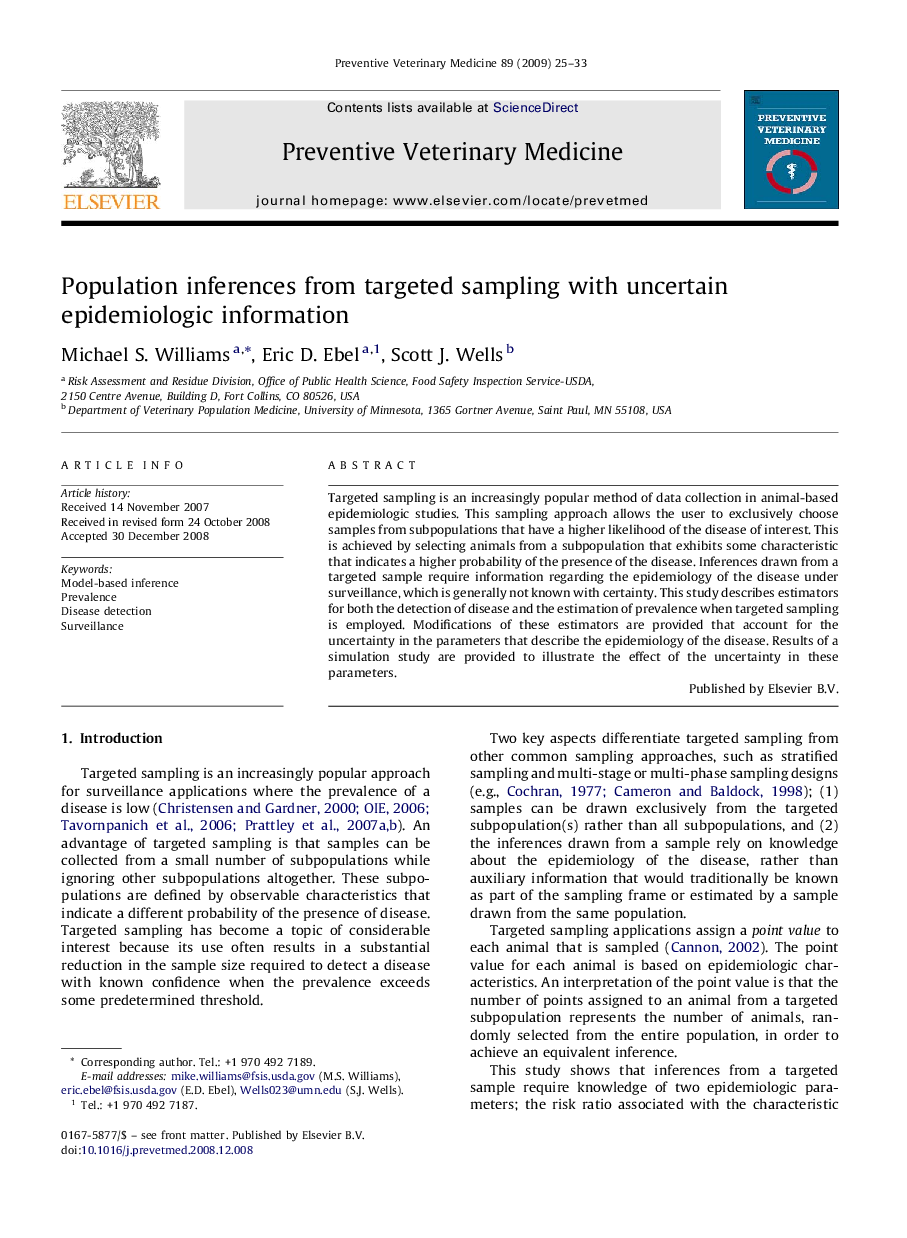| Article ID | Journal | Published Year | Pages | File Type |
|---|---|---|---|---|
| 2453189 | Preventive Veterinary Medicine | 2009 | 9 Pages |
Targeted sampling is an increasingly popular method of data collection in animal-based epidemiologic studies. This sampling approach allows the user to exclusively choose samples from subpopulations that have a higher likelihood of the disease of interest. This is achieved by selecting animals from a subpopulation that exhibits some characteristic that indicates a higher probability of the presence of the disease. Inferences drawn from a targeted sample require information regarding the epidemiology of the disease under surveillance, which is generally not known with certainty. This study describes estimators for both the detection of disease and the estimation of prevalence when targeted sampling is employed. Modifications of these estimators are provided that account for the uncertainty in the parameters that describe the epidemiology of the disease. Results of a simulation study are provided to illustrate the effect of the uncertainty in these parameters.
